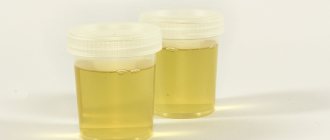Difference from adult drugs
A child’s body, unlike an adult’s, needs a constant supply of vitamin D. This substance promotes the harmonious development of the skeleton and the absorption of beneficial microelements. Therefore, it is very important not to ignore this factor and give the child only children’s medications. They accurately calculate the required amount of all nutrients depending on the age of the baby.
While it is more convenient for an adult to swallow a pill, a one-year-old child may simply choke on it. Therefore, vitamins for them are available in the form:
- syrups and powders (for the little ones);
- lozenges, lollipops, dragees and marmalade (from 2 years).
In addition, unlike tablets, thanks to the interesting shape, smell and color, you can interest your child in taking vitamins.
Vitamins for children from 1 year
Share this article:
Trying to ensure the child’s full and comprehensive development, parents try to make the baby’s diet healthy and enrich it with essential vitamins and nutrients. However, even with proper nutrition, the baby does not always receive the required amount of vitamins from food. In this case, special nutritional supplements containing a complex of useful substances necessary for the child will become an indispensable remedy.
The content of the article:
The advantage of such pills is that they have a different composition (combination and ratio of vitamins) depending on the age of the child. After all, every parent knows that a growing child’s body needs completely different vitamin groups during certain periods of development. Manufacturers of supplements, as a rule, take into account the age characteristics of children, and therefore, when buying such products for your child, you can be absolutely calm: he will definitely receive all the necessary substances.
Today we will figure out what aspects parents should pay attention to when choosing vitamin supplements for a baby over one year of age. You probably know that the role of vitamins in the development of a child’s body is very great. A deficiency of at least one element from the general list can cause serious consequences and provoke health problems in a growing baby. Like all parents, you probably want to find a vitamin complex that would save your child from such unpleasant consequences. In the first year of life, babies, as a rule, do not experience a deficiency of vitamins, because they receive all the necessary microelements from mother’s milk or a special formula for breastfeeding, however, having overcome this age limit, the child begins to develop many times more rapidly, and the body’s needs increase.
What vitamins does a child need?
Has your child already celebrated his first birthday? Great! Then it’s time to think about whether he gets all the vitamins from his daily diet.
Vitamins of group A - thanks to them your baby grows. They maintain the state of the immune system and also develop the visual apparatus. A one-year-old child needs to receive 1350 IU of these nutrients per day.
Vitamins of group D are “building material” for teeth and bones. They normalize the amount of phosphorus and calcium, and also promote the absorption of these important components. To keep your child's teeth and bones strong, he needs to consume at least 400 IU of vitamin D per day.
Vitamins of group C are responsible for the strength and elasticity of blood vessels, and also help the baby improve its protective functions. The daily requirement of vitamin C for a one-year-old child is 40 mg.
B vitamins - this group is worth focusing on, because each individual type of vitamin in it performs its own specific functions.
B1 - normalizes intestinal function and participates in all metabolic processes. The baby should consume at least 0.7 mg of vitamin B1 per day. B2 - promotes the formation of proper metabolism and also energizes the baby. B2 helps maintain eye health and ensures healthy skin. For a child of such a small age, 0.8 mg per day will be enough. B5 - plays an important role in the metabolic process of cholesterol, as well as in the formation of hormonal levels. 3 mg is the daily requirement of vitamin B5 for a baby. B6 - thanks to it, antibodies are formed in the blood. B12 - supports the functioning of the nervous system.
Vitamins of group E are true antioxidants. They strengthen the heart muscle and blood vessel walls.
Vitamins of group H - they “monitor” the health of the hair and epidermis, and also stimulate the liver.
Conditions of use
You should not engage in “self-medication” and prescribe vitamin supplements to your baby at your own request. Usually, additional fortification of the body is an extreme measure resorted to by parents and doctors. If you can do without chemical additives, then do just that! Now let’s look at situations in which the use of vitamin supplements can really help:
- The baby does not eat correctly, which is why there is an inferiority of the vitamin complex.
- A son or daughter is exposed to excessive physical or psychological stress.
- Mom and dad want to strengthen the child's immune system as a preventive measure.
- The child is in the process of recovery after a serious infectious disease.
- The baby has specific diseases that do not allow beneficial substances to be quickly absorbed into the blood, which is why most vitamins are simply not absorbed.
Pay special attention to contraindications to the use of vitamin supplements, otherwise you risk only worsening your child’s condition. Such medications are strictly contraindicated for babies with hypervitaminosis, as well as for children with intolerance to any vitamin groups. We also recommend that you be careful when choosing vitamin supplements if your baby has any kidney problems. In any case, we strongly recommend that you do not make any decisions regarding the use of these medications on your own, but consult a doctor.
Children aged one to two years should also not take vitamin K, because it can seriously weaken the immune system that has not yet strengthened and even cause bleeding.
Types of Vitamin Supplements
Medicine has long learned to make drugs for children not only healthy, but also tasty. Thanks to the pleasant taste of the mixture, the child is not capricious and does not resist its use, but, on the contrary, happily accepts the treatment.
So, vitamin supplements for children over 1 year of age come in several types. It could be:
- delicious syrup;
- a soluble powder that is typically mixed into food or drink;
- soft chewable granules;
- special gel.
Most often, parents choose liquid or gel products for their babies, since they are easiest for the baby to swallow. The vast majority of such mixtures have a pleasant fruity smell and sweetish taste, however, parents should pay attention to the composition of the product: the flavorings and additives it contains can cause allergies if the child is hypersensitive to them.
Experienced mothers and fathers already have a list of their favorite vitamin products in their arsenal. If you are just beginning your acquaintance with such supplements, we advise you to pay attention to the following companies. They have the best price/quality ratio, many years of experience, as well as approval from customers and the trust of parents.
“Aquadetrim” drops This mixture is intended for children who have a deficiency of vitamins D. This solution can be used both for prevention and to restore the vitamin balance in a growing body, if it has already been discovered. The optimal dose of Aquadetrim for a baby is 1 drop per 24 hours.
Powder product “Alphabet” Dry vitamin complex “Alphabet” consists of three different powders. Each of them is dissolved in the specified amount of liquid and given to the baby during meals. Please note that all three types of this product are not mixed, but are consumed in turn. Detailed instructions for use can be found in a special insert inside the box.
Liquid solution “Sana-Sol” Parents planning to buy this product should note that it does not contain vitamin B12, therefore, if the use of the supplement is aimed at replenishing this particular vitamin, it is better to choose another product for your baby. Please also pay attention to one important aspect: the solution contains a substance such as sorbitol, which can disrupt the functioning of the biliary tract. Therefore, if a child has any diseases or problems in this area, it is better not to use the drug. In other cases, “Sana-Sol” will be an excellent vitamin supplement; it should be used 5 ml per day.
Liquid solution “Pikovit 1+” “Pikovit 1+” is a vitamin solution that has a pleasant sweetish taste. Thanks to this, the kids fell in love with him so quickly. The syrup has a high content of ascorbic acid, thiamine, vitamin PP and other useful substances. In addition, the drug is hypoallergenic and causes an allergic reaction only in isolated cases.

Expert advice
- You probably know that vitamin supplements for each specific age group have their own dosages and compositions. Therefore, you should not buy universal vitamins that do not have age marks, and also do not use products intended for older children.
- If a child suffers from allergic (or other) diseases, then any vitamin mixtures should be used only as prescribed by a doctor. We kindly ask you not to self-medicate: this can have the most unexpected effect on the health and well-being of the baby. But! Even if the baby, in your opinion, is completely healthy and there should be no complications from the medication, you should still consult your pediatrician about your intentions. The doctor will be able to select the most effective drugs to ensure that prevention or treatment is successful.
- Have you noticed allergic reactions in your baby more than once? Many vitamin mixtures contain dyes and sweeteners that can be dangerous for your baby. Powder products are best suited for such children.
Does your child need supplements?
Many mothers and fathers are sure that there is absolutely no need to resort to pharmaceutical products, because the baby gets all the useful elements necessary for proper development from food. If you, too, are not a supporter of various medications, then try to do everything possible to ensure that your child’s daily diet combines all the necessary vitamins in the correct quantities.

The baby's daily menu should include meat dishes, fresh vegetables and fruits, dairy products and much more. Also, do not forget that there are vitamins that your baby cannot get from food. For example, vitamin D is produced when the skin is exposed to sunlight. Therefore, do not forget to walk with your baby outside, especially on clear sunny days.
The famous doctor E. Komarovsky confirms the high importance of vitamins in the child’s body, however, he is sure that it is necessary to resort to pharmaceuticals only in cases where the baby has a confirmed deficiency of any vitamin. Komarovsky considers vitamin products that promise to replenish the balance of several vitamin groups at once only as an opportunity for good profits for pharmaceutical companies.
Before going to the pharmacy for a jar of vitamin supplements, a well-known pediatrician advises paying attention to the baby’s menu. The baby should receive food from each group (dairy, vegetable, fruit, meat, etc.). If at least one group is missing from the diet, the baby’s nutrition can already be considered inadequate, which means that the baby may not receive enough necessary vitamins.
Share this article:
I liked the article
Discuss the article
What vitamins are needed?
Vitamin complexes for the proper growth and development of all body systems for children over 1 year old include the following vitamins:
- Vitamin A. It is necessary for the baby’s vision, bone formation, the functioning of the respiratory system, the functioning of the gastrointestinal tract, the development of mental abilities and the restoration of mucous membranes.
- Thiamine (B1). Takes part in regulating carbohydrate metabolism in the body, is responsible for brain activity and the functioning of the gastrointestinal tract. By consuming this vitamin, the child receives the boost of energy he needs for active games, sports and physical activity.
- Riboflavin (B2). Essential for healthy skin, nails and hair. Responsible for metabolism.
- Pyridoxine (B6). Strengthens the immune system and nervous system, takes part in the synthesis of hemoglobin and red blood cells.
- Folic acid (B9). Responsible for the regeneration processes of the body. Increases appetite and has a good effect on skin condition.
- AT 12. Ensures the functioning of the nervous and cardiovascular systems.
- C. Necessary for children with weakened immune systems, as it protects their body from the adverse effects of the environment.
- D. Regulates the amount of microelements (potassium, magnesium, etc.) in the body and is responsible for the development of the skeletal system.
- E. Strengthens the immune system and muscles. Regulates the functioning of the nervous and circulatory systems.
- N. Maintains a healthy appearance of the skin.
- RR. Participates in metabolic processes, helps absorb fats, proteins, carbohydrates and various microelements.
Depending on age, each of the listed vitamins must enter the child’s body in strictly defined quantities.
Therefore, without the recommendations of a pediatrician, you should not buy first-generation products for your baby that contain only one element.
In the first 2 years of a child’s life, the lack of any vitamins in his body is compensated for by breastfeeding and a balanced diet.

Good vitamins for children to boost immunity
Vitamin A is fundamental to building a strong immune system, so getting enough of it is important for children. You can compensate for the lack of vitamin A in a child’s body with the help of yellow and orange vegetables and fruits.
B vitamins are essential for good development. Vitamin B complex includes thiamine, riboflavin, niacin, folic acid, pantothenic acid, vitamins B6 and B12, and biotin. All these vitamins are fundamental for maintaining vital processes in the child’s body, including those involved in hematopoietic function. Without sufficient B vitamins, there is a risk of developing anemia. B vitamins are found in whole grains, fish and poultry, as well as vegetables and dairy products.
Vitamin C plays a special role in the development of children. On the one hand, this vitamin actively stimulates the immune system, on the other hand, it prevents the development of anemia and stimulates cellular metabolism. Citrus fruits are the best source of vitamin C, and children especially love orange juice. Green vegetables, such as cabbage, also contain large amounts of vitamin C.
Vitamin D also plays a huge role in the development of a child’s body. With a lack of this vitamin, calcium absorption will be reduced to a minimum, which will certainly affect the condition of the baby’s bones, teeth and hair. In summer, children, as a rule, do not lack vitamin D, but in winter, its reserves in the body must be regularly replenished. To replenish the supply of vitamin D in a child’s body, experts recommend using special drops.
How to choose?
Vitamins for children over 1 year of age should be prescribed exclusively by a doctor. Only he can accurately determine which of them a baby needs at a certain age and set the dosage for taking them. Independent choice of vitamins is fraught with the occurrence of problems in the child’s internal organs, an allergic reaction, increased blood pressure and other dangerous consequences.
The doctor will tell parents which vitamins are best for a child aged 1 year and older. Moreover, drugs will be offered that vary in price, release form and manufacturer. Preference should be given to a well-known company, without saving on the child’s health. For children over 1 year old, it is better to choose vitamins in the form of gummies, lozenges and lollipops. They already accurately take into account the dosage of all necessary substances. The same cannot be said about syrups.
For children aged 1 year, choosing the best vitamins means giving preference to natural ingredients. Many marmalade figures contain dyes and artificial flavors, which often cause allergies. Therefore, it is very important to read the composition on the package and purchase multivitamins with juices, extracts and other useful additives.
To identify an allergic reaction, the first few days of taking vitamins, parents should monitor the baby’s diet, excluding dangerous foods. If there is no reaction after 2-3 days, then this drug is suitable for the baby.
vitamins for babies
Hi all! Here's what I learned from my experience about vitamin D testing.
Our baby was born in July, but despite this, the pediatrician, noticing that the baby’s legs and arms were slightly damp, prescribed us to drink 1 drop of vitamin D since August. She did not specify which drug to take, at the pharmacy they gave me AquaDetrin (an aqueous solution of vitamin D), so we drank it regularly until October, but my arms and legs remained slightly damp, then I read several dozen more articles about vitamin D, where it was written that vitamin D is fat-soluble, it is difficult to imagine how they could dissolve it in water, and that an aqueous solution is less absorbed by the body, then I bought vigantol and began to give it drop by drop, while at the same time I had read about rickets, naturally I found it in for my child there are a few more signs of developing rickets: with the arrival of autumn and the appearance of a warm hat and an autumn envelope, I noticed the so-called “excessive sweating” of the head and, less often, of the body itself, as well as sudden changes in mood, etc.
What to do? Under no circumstances should you increase the dose of vitamin D yourself, otherwise the consequences may be worse than with a slight deficiency.
In general, like everyone else, I learned about a blood test for vitamin D, it can be taken at Invitro, and at Hemotest, and in similar laboratories, but there is a nuance: blood for testing is taken ONLY from a vein. Of course, I doubted that not every nurse can take blood from a vein from a baby, that’s what they said at Invitro, if it works, we’ll take it...
Thus, all the laboratories not specializing in children were no longer needed, then there were children's CDCs at the Morozov and Filatov hospitals, but I also didn’t want to take an infant to a place crowded with people and their illnesses; as a result of the search, the Children’s Polyclinic was chosen. Semashko, they go to your home and take tests, their hand is full of blood from a vein in these kids, this is the test they do.
Such a good auntie came, carefully took blood from our baby and that’s it. The results of this analysis take 4 days to prepare, then they call and inform you of the results.
The result was something I never expected, I thought we had a deficiency, and I wanted to see what it was, show the doctor so that we could be prescribed an adequate dosage, but it turned out this:
From the laboratory they said the norm “for some reason” is 40-60 mcg (although for adults the reference values are in the range of 25-80 mcg/l), and ours is 85...
And what does it mean? How can we have such a surplus of vitamin D when taking 1 drop per day?! And now what i can do? cancel it altogether? why are the hands and feet sweaty (the child is not hot, we dress adequately) Let's go to the doctor, let him think.
About hypervitaminosis
If vitamins have a pleasant smell and taste, then children will probably want to eat more than the prescribed dose. Therefore, it is very important to keep them out of reach. Some mothers allow the replacement of sweets with marmalade forms of the drug. Under no circumstances should you do this. An excess of useful elements is fraught with the development of hypervitaminosis. This phenomenon is dangerous because it can cause:
- stool disorder;
- loss of appetite;
- seborrhea;
- decreased vision;
- hair loss;
- bleeding gums;
- impaired motor coordination
- insomnia;
- headache;
- failure in the body's metabolic processes;
- cardiopalmus;
- nausea;
- poor blood clotting
- increased nervous excitability;
- numbness of the limbs;
- disruption of the functioning of internal organs and body systems.
All this can be avoided by adhering to the dosage of vitamins. If your child insists on an additional serving, simply replace it with regular marmalade or offer him a healthy alternative in the form of fruit, dried fruit or berries.
What precautions should you take when taking vitamins?
Pediatricians in Russia advise patients to follow certain rules to avoid side effects. Parents should pay special attention to the dosage of the drug. The optimal amount of the drug depends on the age of the patient. The child's immune system is affected by the foods that are present in his diet. Before treatment with vitamin complexes, you should consult a doctor.
It is necessary to follow the recommendations related to the storage of drugs. Exposure to direct sunlight and high temperature have a negative effect on the healing properties. Even the best vitamins cannot replace a good diet.
After vaccination, the body's defenses decrease. It is better not to give your baby products containing vitamin D for 5 days. During this period, disorders associated with calcium metabolism may occur.
Taking vitamin complexes has a beneficial effect on all systems of the child. When prescribing medications, the pediatrician takes into account the presence of allergies to certain substances.
Classification
What are vitamins? They are divided into the following types depending on their composition:
- Monocomponent drugs.
- Multivitamins. Contains 2 useful elements.
- Complex of vitamins and minerals. It contains most of the vitamins and minerals the body needs.
They are produced in the following forms:
- pills;
- marmalade;
- syrup;
- drops;
- lollipops;
- gel;
- powders.
It is impossible to predict which vitamins a 1-year-old child will prefer.
Taking them can be especially important in the autumn-spring period, when the immune system needs to be strengthened, and children walking on playgrounds can already infect each other with viruses and bacteria. But even at this time, the purchase of drugs must be agreed upon with the attending physician.
Why are microelements so necessary for babies?
Vitamins are a group of low molecular weight organic compounds that have a diverse chemical nature. The history of vitamins is very long. Even the ancient Egyptians discovered that if you introduce chicken liver into your diet, you can avoid night blindness, since it is the liver that contains vitamin A, or retinol.
More detailed studies were carried out in 1747 by the Scottish physician James Lind, who was the first to establish the beneficial properties of vitamin C (the most important water-soluble vitamin).
Vitamins take part in metabolism, serve to accelerate chemical reactions in the cell, increase the body's resistance to infections and various diseases, and alleviate the course of the disease.
There are two types of vitamins:
- water soluble;
- fat-soluble.
Every parent, coming to the pharmacy, is immediately overwhelmed by the variety of vitamin preparations, which, in turn, are also divided into 2 types:
- single-component vitamins;
- multivitamins, or multivitamin complex.
Does a one-year-old baby need vitamin supplements?
The answer to this question always causes a lot of controversial debates, both among doctors and parents. However, the most important question is what vitamins a child needs to boost and strengthen immunity. It is believed that if the child is still breastfed, then all vitamins will be supplied with mother's milk.
If the child has already been transferred to artificial feeding, then the vitamins contained in the formula are also sufficient for normal development, therefore, the child does not need additional fortification. Moreover, a child who has passed the age threshold of 1 year, with the introduction of complementary foods, namely fruits, vegetables, meat and fish, does not need vitamins at all.
All these statements are not fully confirmed to be correct. For example, if a nursing mother does not eat well and does not eat enough fresh vegetables and fruits, then for a one-year-old child there will be few vitamins in breast milk.
The mixture also does not provide 100% immunization. And fruits and vegetables are also a controversial issue. It is not known how they were grown, what they were fed with, how they were preserved: this information is sometimes not always available. Sometimes in stores and on counters with exotic fruits, oranges and bananas lie for months, and this suggests that all the vitamins there have simply “disintegrated” and no longer represent their former nutritional and energy value for the body.
Therefore, taking synthetically produced vitamins is necessary for a growing body. It makes sense to give them to children not only to boost immunity, but also to improve general well-being, stabilize metabolism in the body, normal development of the musculoskeletal system and for the normal, physiological development of the central nervous system (CNS).

The best children's vitamin complexes
Today in pharmacies you can find a wide range of vitamins for children. In order not to try everything at once, below we have given you an overview of the best complexes. They can have different directions, so it is very important to read the instructions in the package.
Multi-tabs
This vitamin complex comes from Denmark. It is available in the form of syrups or tablets. The drugs vary according to the needs and characteristics of the body:
- Multi-tabs baby. This is the best complex designed for children from 1 to 4 years old. It is completely hypoallergenic, as it does not contain synthetic components, only beneficial vitamins and microelements.
- Multi-tabs Sensitive. This is a complex of vitamins for children sensitive to allergenic components.
- Multi-tabs baby Calcium +. Designed for children 2-7 years old. The complex is enriched with calcium and is recommended during the formation of the child’s skeleton during teething or a sharp growth spurt.
- Multi-tabs Junior. Vitamin complex for adult children from 4 years old. Helps the body develop fully and harmoniously.
Alphabet
Russian vitamin complex with natural ingredients. It takes into account all recommendations for separate and joint intake of vitamins.
- Our Baby. For small children from 1 to 3 years old. This fortified powder can easily be added to your baby’s food or drink. Contains vitamin D3, necessary to prevent the development of rickets.
- Kindergarten. This complex is suitable for children aged 3 years and older attending public institutions. Available in the form of chewable lozenges. It improves the baby's brain activity, helps him resist harmful environmental influences and promotes emotional adaptation.
- Schoolboy. Complex for school-age children (from 7 years old). Also available in chewable tablet form. Reduces emotional stress and improves brain activity.
VitaMishki
Vitamin complexes from the USA, produced in the form of marmalade figures. Suitable only for children over 3 years old and made using natural ingredients.
- VitaMishki Immune +. Strengthen the immune system and protect the body during colds.
- VitaMishki Multi +. They contain components responsible for brain activity, memory and attention.
- VitaMishki Calcium +. Strengthen the skeleton.
- VitaMishki Bio +. Restore beneficial intestinal microflora, improving digestion.
- VitaMishki Focus +. They improve vision due to the content of blueberries.
Vitrum Baby
Vitamin complex in the form of chewable tablets. Contains 12 vitamins and 11 minerals. It is allowed for children over 2 years old. Multivitamins do not contain artificial additives and contribute to the mental and physical development of the baby.
Kinder Biovital
The jelly-like gel, produced in Germany, contains 9 vitamins and an amino acid. Safe even for the youngest children under one year old.
Pikovit 1+ Syrup
This vitamin syrup with a pleasant smell and taste is usually very popular with children aged 1 year and older. It contains ascorbic acid, thiamine, vitamin PP and riboflavin.
Vitamins for children over 10 years old
From the age of 10, a child begins to actively develop muscle mass, so his body needs additional vitamins and minerals. B vitamins, which take part in the formation of proteins, are very important for full development. For maximum absorption of B vitamins, vitamin E is needed, which is available in pharmacies in the form of a monovitamin. In addition, vitamins A, C and D, which are also available in pharmacies, are very important for the health of a child over 10 years old.
Which vitamins for children's growth with calcium are best?
All parents know that for normal growth and full development of the child, the body must regularly receive calcium in sufficient quantities.
For children under the age of one year, this amount is 600 milligrams, for children under ten years old - 800 milligrams, for children over 10 years old - up to 1200 milligrams. Since it is almost impossible to obtain calcium in such quantities from natural sources, experts recommend the use of vitamin and mineral complexes for the growth of children with calcium. The following complexes are considered the best on the market:
- Multi-tabs baby Calcium+;
- Pikovit;
- Vitamins;
- VitrumCircus;
- Kid'sFormula;
- Kinder Biovital gel;
- Vitrum Baby;
- Centrum Children's.
Vitamins for children for eyes
When it comes to a child's vision, all parents will agree that it is impossible to joke about it and pay insufficient attention to eye health. Every child, regardless of the current state of visual health, needs to regularly consume foods rich in vitamins A, C, B1, B2, B6 and B12. During a period when it is impossible to consume natural products containing these vitamins, it is necessary to select a vitamin-mineral complex that optimally combines elements important for eye health. These vitamin and mineral complexes include:
- Polyvit baby. The composition includes vitamins A, B1, B2, B6, B12, C, D, E, PP;
- Sana-Sol. The complex includes vitamins: A, B1, B2, B6, B12, C, D, E, PP;
- Pikovit. The vitamin-mineral complex includes vitamins A, B1, B2, B6, B12, C, D, E, PP;
- Multi-Tabs Classic. The vitamin-mineral complex contains all the necessary biological compounds to normalize the condition of the visual organs;
- Vita Bears.
Vitamins for children Alphabet, Supradin, Multi Tabs, Vitrum, Pikovit - which are better?
It is impossible to talk about the best vitamins for children in the context of a specific product. Alphabet, Supradin, Multitabs, Vitrum, Pikovit - all these vitamin-mineral complexes have their own characteristics and differ in composition. Experts remind that you should choose vitamins for children based not on their popularity, price or name, but on the composition and effect they have on the body. Before purchasing any specific vitamin and mineral complex for children, you should consult your doctor or pediatrician. Only professionals will be able to identify the actual lack of vitamins in the child’s body and determine which complex can solve this problem.
Prices for vitamins
Many parents often worry about how much vitamins for children cost. Before indicating the actual prices for vitamins for children in online pharmacies, it is necessary to remind you that you cannot save on the health of your children. But this does not mean at all that vitamin-mineral complexes are sold in pharmacies at incredible prices. On the contrary, some vitamins, especially monovitamins, are more than affordable.
As an example, we can give the cost of some drugs:
- Vitamins for children Alphabet during the cold season cost 520 rubles;
- Vitamins for children Alphabet our baby cost 589 rubles;
- Vitamins for children Alphabet Schoolboy 60 tablets cost 473 rubles;
- Vitamins for children Kudesan costs 847 rubles;
- Vitamins for improving digestion ProbioKid Immuno cost 589 rubles;
- Chewable lozenges Kinder Biovital, 30 pieces cost 487 rubles.
Contraindications and indications for use
Vitamins, like all medicines, have their own list of contraindications and indications. They are prescribed to a child from 1 year of age, when he:
- eats little and unbalancedly;
- moves a lot and actively;
- needs increased immunity;
- is recovering from a serious illness;
- has problems absorbing nutrients from food.
Vitamin complexes are contraindicated in case of hypervitaminosis, kidney disease and sensitivity to the components of the drug.
In the period from 1 year to 2 years, it is not advisable to give children multivitamins with vitamin K, as they weaken the immune system and can cause bleeding.
A doctor's ban on taking vitamin complexes is also considered a contraindication.
Types of vitamins

When choosing drugs, it is important to pay attention to age restrictions and side effects. Children's vitamins to enhance immunity are used for preventive purposes. They significantly reduce the risk of flu and sore throat.
Manufacturers produce vitamin complexes in the form of:
- powder:
- syrup;
- lozenges to chew;
- film-coated tablets.
Important! The forms of vitamins should be selected taking into account the age of the baby.
Powder preparations are intended for the treatment of infants. For children aged 5 years, chewable lozenges and syrup are more suitable. To improve the taste, manufacturers add fruit fillers to the syrup.
All drugs can be divided into several groups:
- 1st generation vitamins include products that are made on the basis of 1 component.
- Various minerals are added to 2nd generation preparations.
- 3rd generation vitamins for immunity have an expanded composition due to plant extracts.
Dry berries, which contain vitamins and minerals, affect the child’s immunity. They help activate cells that are designed to fight pathogenic bacteria.
Regular intake of medications allows for proper functioning of all systems of the baby’s body.
There are 2 types of vitamins:
Daily norms

The amount of each vitamin depends solely on the age of the baby. At every age, the body's needs decrease. Of the entire group, vitamin B4 stands alone - its daily requirement is from 100 to 350 mg for all ages. Only a doctor can determine your baby’s specific need for this substance, and only after a detailed blood test. We will now “decompose” all other representatives of the group by age, the amount is given in milligrams.
| Age | 0-6 months | 6-12 months | from 1 to 3 years | from 4 to 6 years | from 7 to 10 years | boys 11-14 years old | boys 15-18 years old | girls 11-14 years old | girls 15-18 years old |
| Vitamin | |||||||||
| IN 1 | 0,4 | 0,5 | 0,8 | 0,9 | 1,2 | 1,4 | 1,4 | 1,3 | |
| AT 2 | 0,5 | 0,6 | 0,9 | 1 | 1,4 | 1,7 | 1,8 | 1,5 | |
| AT 3 | 15 | ||||||||
| AT 5 | 2 | 3 | 4,3 | ||||||
| AT 6 | 0,1 | 0,3 | 0,5 | 0,6 | 1 | 1,3 | 1 | 1,2 | |
| AT 7 | 44 | 20-40 | 50 | 20-40 | 50 | ||||
| AT 9 | 40 | 60 | 100 | 200 | |||||
| AT 12 | 0,4 | 0,5 | 0,9 | 1,2 | 1,8 | 2,4 | 1,8 | 2,4 | |
Of course, there are vitamins of group B (B) for children in tablets, drops, capsules and other possible dosage forms - pharmaceuticals take into account all possible requests of potential buyers. But with a proper diet, all of the listed daily norms of these important substances can be obtained from simple foods.
What products can you find them in?
Every child can receive vitamin B from the daily menu. This group of vitamins contains:
- Yeast;
- Cheese, milk and cottage cheese;
- Sprouted grains;
- Liver;
- Legumes;
- Green vegetables;
- Fish;
- Eggs;
- Nuts.
As we can see, the products we are accustomed to contain necessary and useful microelements in large quantities. Their main advantage is that even after heat treatment they do not lose their properties. For nursing mothers, nutrition must be balanced and varied.
Children who have grown up and are already starting to eat with complementary foods should receive certain foods from their daily diet that were given earlier.
A complete diet is not always possible or it is not always possible to follow it, so you can compensate for the lack of some vitamins with the help of vitamin complexes. If the baby has any of the signs of a lack of essential microelements, then without a doubt it is necessary to begin to make up for this deficiency, but before doing this, you should consult a doctor.
Contraindications to taking vitamins
The main contraindication to taking vitamins is the absence of a reason for it. If the baby looks healthy and nothing in his appearance or behavior indicates a vitamin deficiency, you should not give him anything. Taking vitamins cannot be preventive, since if these substances (and they are sold, as a rule, in concentrated form) are given to a child without a deficiency, the body will be oversaturated. This condition is called hypervitaminosis and there is nothing good about it - it is the same painful condition as vitamin deficiency.
Vitamin complexes should not be confused with nutritional supplements that are sold as recommended for daily use by a child. Such preparations are safe because they contain essential amino acids and other useful “resources” for the physical and mental development of the child. This also includes a variety of breakfast mixtures and cocoa drinks.
Vitamins from iHerb
iHerb is an American company that distributes dietary supplements and other beneficial substances, including vitamins. You can order any complexes from there with maximum benefit for yourself - there are not only low prices, but also constant discounts and promotions.
iHerb delivers to Russia, and its cost slightly increases the order price. This is an ideal solution if the necessary vitamins are not sold locally or are sold at an inflated price. The order goes to most regions of Russia for a very short time - within a week, which is not enough for delivery by airmail.
Advantages of ordering on iHerb:
- a huge assortment, including those vitamins that cannot be found in Russia;
- favorable prices in stable dollars;
- discounts, promotional codes and other promotional offers are constantly updated and allow you to save up to 50% of your order.
The website has a whole section dedicated exclusively to vitamins, and the products in it are certified and meet international standards.










